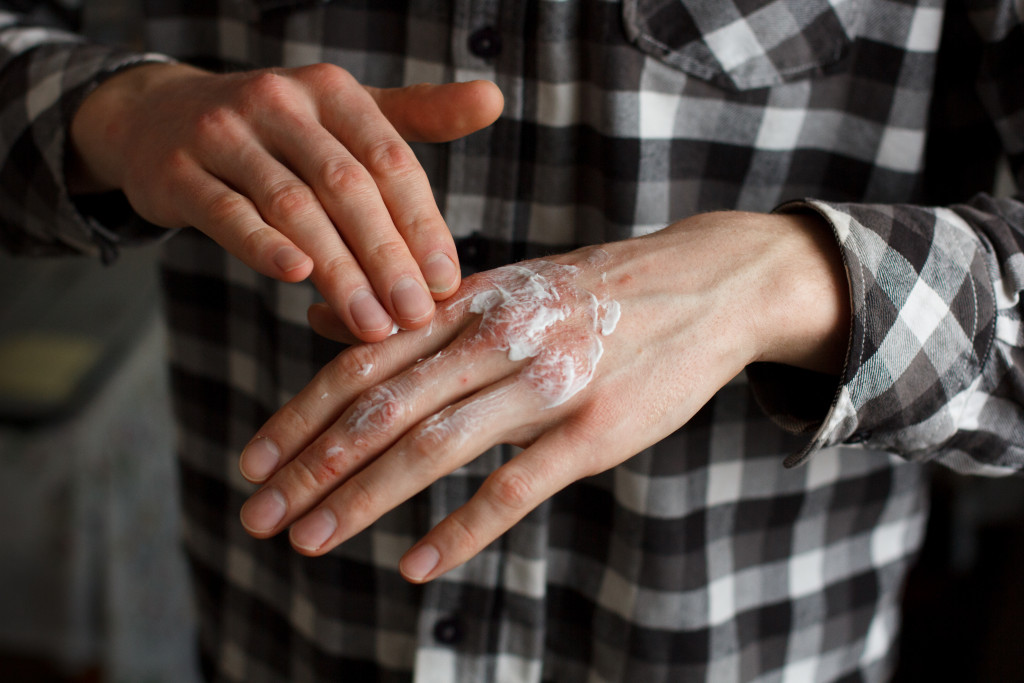The skin is fundamental in keeping the body healthy and functioning correctly. It acts as a barrier between the outside world and our internal organs, helps regulate our body temperature, and eliminates toxins through sweat. So, when our skin becomes dry, it can significantly impact our overall health and well-being.
Dry skin is a common problem that can be caused by various things, including the weather, your environment, and even the products you use. While it’s not a severe condition, severely dry skin can be uncomfortable and unsightly. Here’s what you need to know about it and how to treat it.
Dry Skin
Dry skin is characterized by a loss of moisture in the outermost layer of the skin. This can happen for several reasons, including exposure to harsh weather conditions, using harsh soaps or cleansers, and aging. Dry skin can lead to itching, redness, and cracking. In severe cases, it can even lead to bacterial infections.
Severe dry skin happens when your skin becomes flaky. Some parts can start peeling off, while others can become rough, scaly, or patchy. Your skin may also become severely inflamed and irritated to the point that it’s red. In addition, you may experience itching, burning, or stinging sensations.
Moreover, severely dry skin has complications that can lead to skin cancer, eczema, and psoriasis.

Complications With Severe Dry Skin
Most of the time, dry skin isn’t fatal, nor can it lead to skin diseases. However, when dry skin is left untreated for a long time, it can cause serious complications. One of the most common complications is eczema.
Eczema
Eczema is a chronic skin condition that causes the skin to become red, inflamed, and itchy. In severe cases, it can lead to blistering and crusting. In addition, eczema makes you more likely to develop other conditions like asthma and hay fever.
Psoriasis
Psoriasis is another common complication associated with dry skin. Psoriasis is a condition where the skin cells grow too quickly, causing them to build up on the surface of the skin and form patches of scale-like skin. These patches can be painful, itchy, and unsightly. Left untreated, psoriasis can also lead to other severe conditions like heart disease and diabetes.
Skin Cancer
Another complication of dry skin is skin cancer. Skin cancer is the abnormal growth of skin cells. It can occur anywhere on the body, but it’s most commonly found in areas that have been exposed to the sun for long periods. Skin cancer is a severe condition that can be fatal if left untreated.
How to Treat Severe Dry Skin
If you have severely dry skin, there are a few things you can do to treat it. The first is through microbiome treatment.
Microbiome
Microbiome treatment is changing how the world views bacteria and their effects on people’s skin. Most of the time, people think of bacteria as harmful to you. However, good bacteria live on your skin and are essential for keeping it healthy. When the balance of good and bad bacteria is off, it can lead to dry skin.
Various microbiome treatments are available, including topical creams, probiotics, and prebiotics. Topical creams help to restore the natural balance of bacteria on the skin. Probiotics are live bacteria that help to keep the skin healthy. Prebiotics are food for probiotics. They help to keep the probiotics alive and working correctly.
Moreover, some products utilize this kind of treatment. For example, a good microbiome body gel can alleviate your body from dry skin while preventing it from returning. It can also keep your skin silky smooth. Other products include body lotions, face creams, and even shampoo.
The second way to treat severely dry skin is through moisturization.
Moisturizers
Moisturizers help to prevent the skin from losing moisture. Various moisturizers are available on the market, including lotions, creams, gels, and oils. Each type of moisturizer has its own set of benefits.
For example, lotions are typically lighter in texture and can be easily absorbed by the skin. They’re ideal for people with oily skin or who live in humid climates. Creams are thicker than lotions and can provide more intensive hydration. They’re suitable for people who have dry skin or who live in dry climates. Gels are often water-based and can help to soothe and cool the skin. They’re ideal for people with sensitive skin or who suffer from conditions.
Diet
Another way to treat severely dry skin is through diet. Eating foods high in healthy fats, like avocados and olive oil, can help moisturize the skin from the inside out. In addition, foods rich in vitamins A, C, and E are also beneficial for the skin. These vitamins help to protect the skin from damage and keep it healthy.
Drinking plenty of water is also vital for keeping the skin hydrated. Aim to drink eight glasses of water a day.
Dry skin is irritating but never problematic. However, once it becomes severe, it can lead to many other problems. If you have severely dry skin, it’s essential to seek treatment and changes in your lifestyle to avoid the complications that come alongside it.

